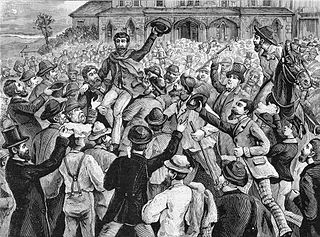Ruling
The sheriff ruled that:
"Now something has been said about consent. I direct you in law that consent—if you in fact were to find that Wilkie had consented in some way to this assault—then that would not be a defence … if the act is criminal it cannot lose its criminal character because the victim consented, and the reason is not far to seek. "
Smart was found guilty of assault by the jury and sentenced to detention for a period of three months. Smart chose to appeal this decision claiming consent was a defence to a charge of assault on the grounds that both men had chosen to fight without weapons in similar conditions to a boxing match. Smart relied on a passage from Gordon, Criminal Law at page 773, which stated:
"If A and B decide to fight each other they cannot be guilty of assaulting each other, so long as neither exceeds the degree of violence consented to or permitted by law."
The appeal was heard on 24 January 1975 in the High court of justiciary, who on appeal held that it was not a defence to a criminal charge of assault that the injuries had been caused in the course of a consensual fight. The court held that:
"it is in the public interest that it should be decided and made known that consent to a 'square go' is not a defence to a charge of assault based on that agreed combat."
The situation was different from indecent acts or injuries caused in the course of organised sports, such as boxing.
In the terminology of law, an assault is the act of causing physical harm or unwanted physical contact to another person, or, in some legal definitions, the threat or attempt to do so. It is both a crime and a tort and, therefore, may result in criminal prosecution, civil liability, or both. Additionally, assault is a criminal act in which a person intentionally causes fear of physical harm or offensive contact to another person. Assault can be committed with or without a weapon and can range from physical violence to threats of violence. Assault is frequently referred to as an attempt to commit battery, which is the deliberate use of physical force against another person. The deliberate inflicting of fear, apprehension, or terror is another definition of assault that can be found in several legal systems. Depending on the severity of the offense, assault may result in a fine, imprisonment, or even death.
A plea bargain, also known as a plea agreement or plea deal, is a legal arrangement in criminal law where the defendant agrees to plead guilty or no contest to a charge in exchange for concessions from the prosecutor. These concessions can include a reduction in the severity of the charges, the dismissal of some charges, or a more lenient sentencing recommendation. Plea bargaining serves as a mechanism to expedite the resolution of criminal cases, allowing both the prosecution and the defense to avoid the time, expense, and uncertainty of a trial. It is a prevalent practice in the United States, where it resolves the vast majority of criminal cases, and has been adopted in various forms in other legal systems worldwide.
In a civil proceeding or criminal prosecution under the common law or under statute, a defendant may raise a defense in an effort to avert civil liability or criminal conviction. A defense is put forward by a party to defeat a suit or action brought against the party, and may be based on legal grounds or on factual claims.

In common law jurisdictions, an acquittal means that the prosecution has failed to prove that the accused is guilty beyond a reasonable doubt of the charge presented. It certifies that the accused is free from the charge of an offense, as far as criminal law is concerned. The finality of an acquittal is dependent on the jurisdiction. In some countries, such as the United States, an acquittal prohibits the retrial of the accused for the same offense, even if new evidence surfaces that further implicates the accused. The effect of an acquittal on criminal proceedings is the same whether it results from a jury verdict or results from the operation of some other rule that discharges the accused. In other countries, like Australia and the UK, the prosecuting authority may appeal an acquittal similar to how a defendant may appeal a conviction — but usually only if new and compelling evidence comes to light or the accused has interfered with or intimidated a juror or witness.
A hybrid offence, dual offence, Crown option offence, dual procedure offence, offence triable either way, or wobbler is one of the special class offences in the common law jurisdictions where the case may be prosecuted either summarily or on indictment. In the United States, an alternative misdemeanor/felony offense lists both county jail and state prison as possible punishment, for example, theft.

R v Brown[1993] UKHL 19, [1994] 1 AC 212 is a House of Lords judgment which re-affirmed the conviction of five men for their involvement in consensual unusually severe sadomasochistic sexual acts over a 10-year period. They were convicted of a count of unlawful and malicious wounding and a count of assault occasioning actual bodily harm. The key issue facing the Court was whether consent was a valid defence to assault in these circumstances, to which the Court answered in the negative. The acts involved included the nailing of a part of the body to a board, but not so as to necessitate, strictly, medical treatment.
Johnson Aziga is a Ugandan-born Canadian man formerly residing in Hamilton, Ontario, Canada, notable as the first person to be charged and convicted of first-degree murder in Canada for spreading HIV, after two women whom he had infected without their knowledge died.

The criminal law of Canada is under the exclusive legislative jurisdiction of the Parliament of Canada. The power to enact criminal law is derived from section 91(27) of the Constitution Act, 1867. Most criminal laws have been codified in the Criminal Code, as well as the Controlled Drugs and Substances Act, Youth Criminal Justice Act and several other peripheral statutes.
In criminal law, consent may be used as an excuse and prevent the defendant from incurring liability for what was done.
Murder is an offence under the common law legal system of England and Wales. It is considered the most serious form of homicide, in which one person kills another with the intention to unlawfully cause either death or serious injury. The element of intentionality was originally termed malice aforethought, although it required neither malice nor premeditation. Baker states that many killings done with a high degree of subjective recklessness were treated as murder from the 12th century right through until the 1974 decision in DPP v Hyam.

R v Jobidon, [1991] 2 SCR 714 is a leading Supreme Court of Canada decision where the Court held that consent cannot be used as a defence for a criminal act such as assault which may cause "serious hurt or non-trivial bodily harm".

The World's End Murders is the colloquial name given to the murder of two girls, Christine Eadie, 17, and Helen Scott, 17, in Edinburgh, in October 1977. The case is so named because both victims were last seen alive leaving The World's End pub in Edinburgh's Old Town. The only person to stand trial accused of the murders, Angus Robertson Sinclair, was acquitted in 2007 in controversial circumstances. Following the amendment of the law of double jeopardy, which would have prevented his retrial, Sinclair was retried in October 2014 and convicted of both murders on 14 November 2014. He was sentenced to life imprisonment with a minimum term of 37 years, the longest sentence by a Scottish court, meaning he would have been 106 years old when he was eligible for a potential release on parole. He died at HM Prison Glenochil aged 73 on 11 March 2019. Coincidentally, he died on the same day the BBC's Crimewatch Roadshow programme profiled the murders.
The Double Jeopardy Clause of the Fifth Amendment to the United States Constitution provides: "[N]or shall any person be subject for the same offence to be twice put in jeopardy of life or limb..." The four essential protections included are prohibitions against, for the same offense:

Scots criminal law relies far more heavily on common law than in England and Wales. Scottish criminal law includes offences against the person of murder, culpable homicide, rape and assault, offences against property such as theft and malicious mischief, and public order offences including mobbing and breach of the peace. Scottish criminal law can also be found in the statutes of the UK Parliament with some areas of criminal law, such as misuse of drugs and traffic offences appearing identical on both sides of the Border. Scottish criminal law can also be found in the statute books of the Scottish Parliament such as the Sexual Offences (Scotland) Act 2009 and Prostitution (Scotland) Act 2007 which only apply to Scotland. In fact, the Scots requirement of corroboration in criminal matters changes the practical prosecution of crimes derived from the same enactment. Corroboration is not required in England or in civil cases in Scotland. Scots law is one of the few legal systems that require corroboration.

Moorov v His Majesty's Advocate1930 JC 68 is a Scots criminal and evidence law case that concerns admissibility of similar fact evidence. The High Court of Justiciary established the Moorov doctrine in its judgment, which is predominantly used in criminal prosecutions involving allegations of rape and sexual abuse.

Ross v HM Advocate1991 JC 210 is a leading Scots criminal case that concerns automatism as defence. The High Court of Justiciary clarified the rules for an accused to successfully argue automatism as a defence to a criminal charge.

R v R[1991] UKHL 12 is a decision in which the House of Lords determined that under English criminal law, it is a crime for a husband to rape his wife.
John Harris Byrne is a retired Australian jurist who previously served as Senior Judge Administrator of the Supreme Court of Queensland. Having been a judge of that court since 1989, he was one of the court's most experienced judges. He was also Chair of the National Judicial College of Australia, a body which provides programs and professional development resources to judicial officers in Australia. He is now a private Commercial Arbitrator.

Criminalization of consensual BDSM practices is usually not with explicit reference to BDSM, but results from the fact that such behavior as spanking or cuffing someone could be considered a breach of personal rights, which in principle constitutes a criminal offense. In Germany, Netherlands, Japan and Scandinavia, such behavior is legal in principle. In Austria the legal status is not clear, while in Switzerland and parts of Australia some BDSM practices can be considered criminal.
South African criminal law is the body of national law relating to crime in South Africa. In the definition of Van der Walt et al., a crime is "conduct which common or statute law prohibits and expressly or impliedly subjects to punishment remissible by the state alone and which the offender cannot avoid by his own act once he has been convicted." Crime involves the infliction of harm against society. The function or object of criminal law is to provide a social mechanism with which to coerce members of society to abstain from conduct that is harmful to the interests of society.








